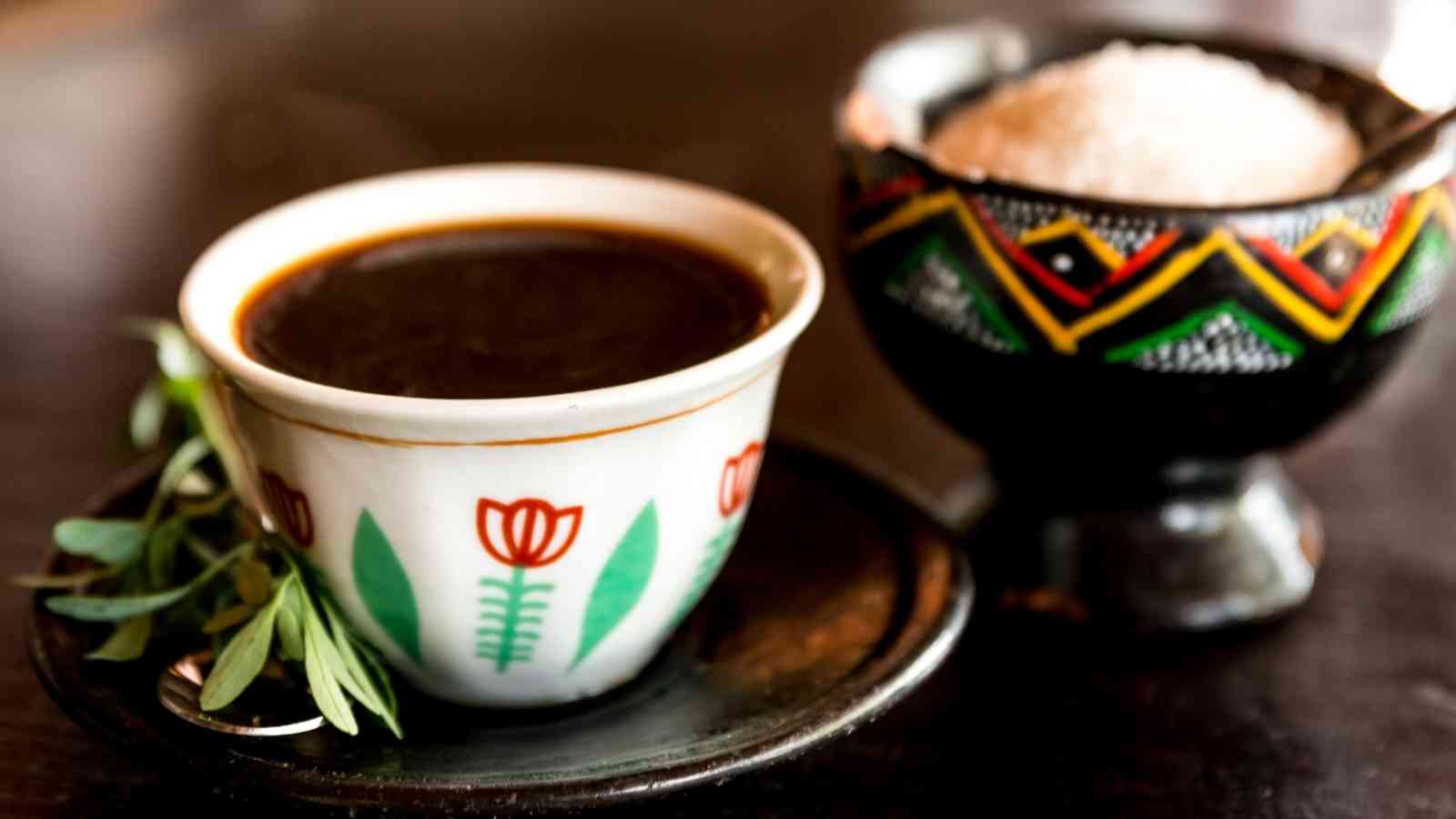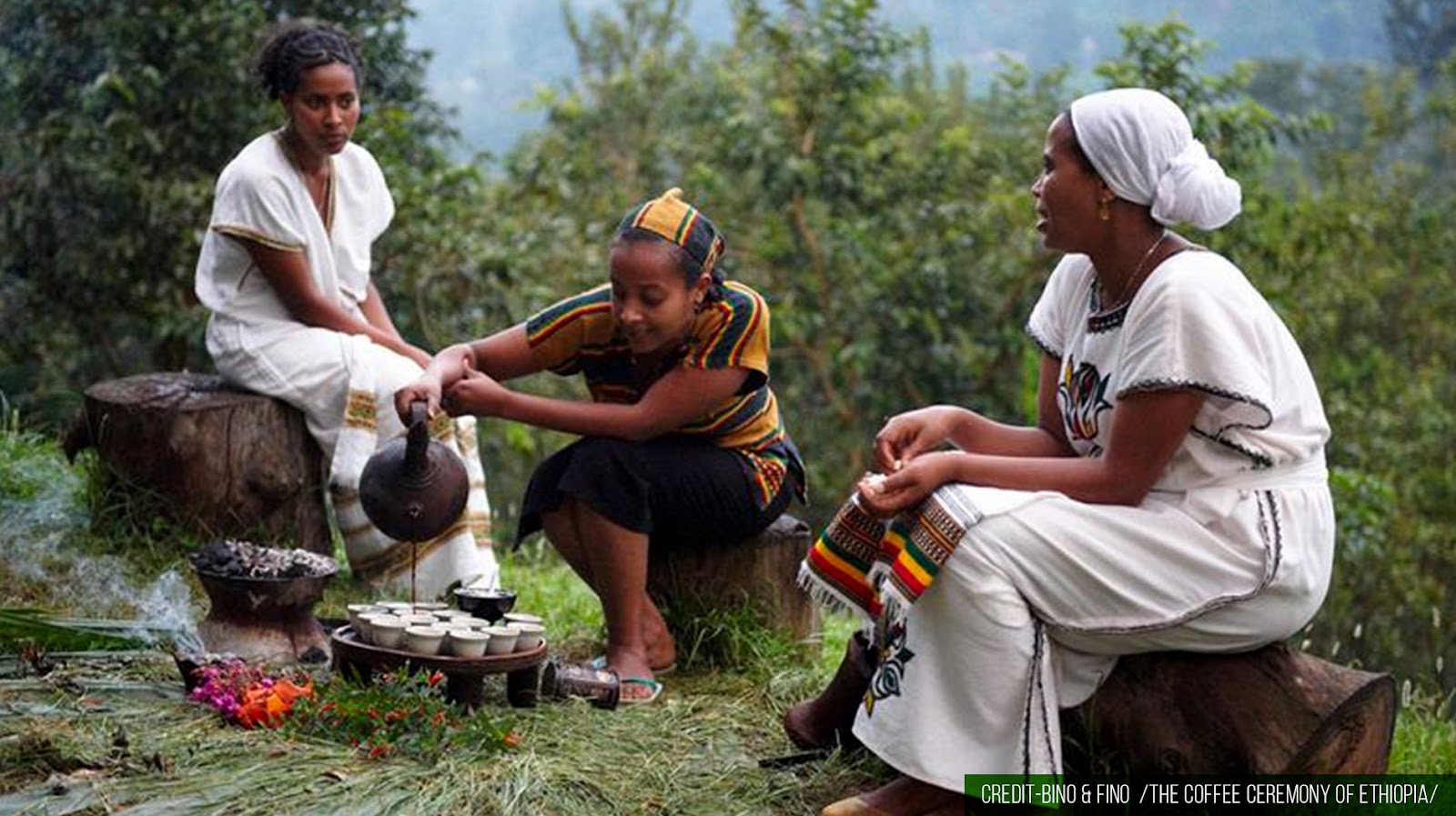The Ethiopian coffee ceremony is a significant cultural tradition that has been practiced for centuries in Ethiopia, known as the birthplace of coffee. Coffee holds a special place in Ethiopian culture and plays a central role in social gatherings, hospitality, and daily life. The coffee ceremony is a ceremonial and communal event that involves the preparation, serving, and enjoyment of coffee in a highly ritualized manner. Let’s explore the history of the Ethiopian coffee ceremony:
Origins of Coffee in Ethiopia
Ethiopia has a long history of coffee cultivation, with the practice dating back to ancient times. The legend of Kaldi, a goat herder from the Ethiopian highlands, is often cited as the origin story of coffee. According to the legend, Kaldi noticed his goats becoming energetic after eating the red berries of a certain plant. Curious, he tried the berries himself and experienced their stimulating effects. This discovery eventually led to the cultivation and consumption of coffee in Ethiopia.

Historical Significance
Coffee holds deep cultural and social significance in Ethiopia. It is considered the “gift of God” and is an integral part of Ethiopian identity. The coffee ceremony is more than just the act of preparing and drinking coffee; it is a social ritual that brings people together, fosters community, and symbolizes hospitality, friendship, and respect.
The Coffee Ceremony
The Ethiopian coffee ceremony is typically performed by a woman, often the host or an honored guest, in a traditional Ethiopian household. It is a time-consuming process that emphasizes the importance of patience and mindfulness.
The ceremony begins with the washing and roasting of green coffee beans over an open flame. The roasted beans are then ground using a mortar and pestle. The ground coffee is placed in a traditional clay coffee pot called a “jebena.” Water is added to the jebena, and the coffee is brewed slowly over hot charcoal or a small stove.

During the brewing process, the rich aroma of the coffee fills the air, creating an inviting atmosphere. The host pours the coffee into small cups called “cini,” often placed on a decorative tray. The first cup, known as “abol,” is poured and served to the most important guest or eldest person as a sign of respect. The second cup, “tona,” is served next, followed by the third, “bereka.” Each cup represents a specific stage: the first is said to be strong, the second mild, and the third is considered a blessing.
As the guests enjoy the coffee, they engage in conversations, storytelling, and social bonding. The ceremony is an opportunity to share thoughts, exchange ideas, and connect with one another.
Cultural Significance
The Ethiopian coffee ceremony reflects the cultural values of hospitality, community, and friendship. It is a time for people to gather, relax, and enjoy each other’s company. The ceremony often takes place in homes, cafes, or traditional coffee houses called “buna bet” throughout Ethiopia. It is also a common sight at cultural events, weddings, and celebrations.
The Ethiopian coffee ceremony has gained recognition and popularity worldwide, showcasing the country’s rich coffee heritage and traditions. It is an integral part of Ethiopia’s cultural identity and continues to be cherished and practiced across the nation.

Overall, the history of the Ethiopian coffee ceremony is deeply intertwined with the country’s long-standing coffee culture. It represents the essence of Ethiopian hospitality and serves as a celebration of community, tradition, and the art of coffee preparation.


Comment (0)